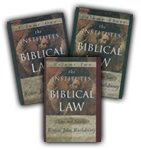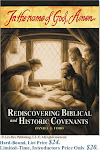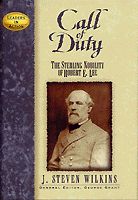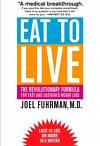Friday, September 20, 2013
Melody's Blessed 19th Birthday
Monday, June 10, 2013
Is "Unconditional Love" Biblical?
~R. J. Rushdoony, Chalcedon Report #30 (1968)
Wednesday, April 10, 2013
Free Will?
Of the wicked: "The Lord has made all for Himself, Yes, even the wicked for the day of doom." (Pro. 16:4) "He has blinded their eyes and hardened their hearts, Lest they should see with their eyes, Lest they should understand with their hearts and turn, So that I should heal them." (John 12:40)
The God who created all things, sovereignly decrees all things, without sin, for the good of His elect and the glory of His Name.
Therefore God has mercy on whom he wants to have mercy, and he hardens whom he wants to harden.
One of you will say to me: "Then why does God still blame us? For who resists his will?" But who are you, O man, to talk back to God? "Shall what is formed say to him who formed it, 'Why did you make me like this?' Does not the potter have the right to make out of the same lump of clay some pottery for noble purposes and some for common use?
What if God, choosing to show his wrath and make his power known, bore with great patience the objects of his wrath--prepared for destruction? What if he did this to make the riches of his glory known to the objects of his mercy, whom he prepared in advance for glory--even us, whom he also called, not only from the Jews but also from the Gentiles?
As He says in Hosea: "I will call them 'my people' who are not my people; and I will call her 'my loved one' who is not my loved one."
The scriptures say that Pharaoh hardened his heart, and says that God hardened Pharaoh's heart. Man's free will is in bondage to sin.
Thursday, January 24, 2013
"Take this world and give me Jesus..."
Friday, August 3, 2012
All of Life is Inescapably Religious
any area vacated by a religion
because all life is inescapably religious."
Monday, July 23, 2012
No nostalgia for me.
Manners
Manners are the lubricating oil of society, that which makes life livable, community possible. It establishes ground rules, common courtesy, for human relationships. ~RJR
Thursday, August 18, 2011
Is anxiety idolatry?
Whenever a man is ruled by a spirit of autonomy, he is then capable essentially of self prayer only. He worries, frets, and cudgels his brains in order to ferret out the secret of salvation within himself…Autonomy is marked by anxiety.
Thursday, June 16, 2011
Institutes of Biblical Law
Monday, February 21, 2011
Humanism
Saturday, January 1, 2011
God is Sovereign, not man, not church, not civil government.
Saturday, November 20, 2010
Educational Freedom
The homeschool movement represents the essence and best hope of a free society in which individual families decide freely how to educate their own children. Its growth is the best indicator that “free men do not wait for the future; they create it.”
 “There is no doubt that the decline of Christianity in America is due to the capture of its educational institutions by the humanists. The process started as early as 1805 when the Unitarians took control of Harvard University and began their long-range campaign to eradicate Calvinism as the chief spiritual and cultural force in America.” R. J. Rushdoony, Messianic Character of Education, p. 333
“There is no doubt that the decline of Christianity in America is due to the capture of its educational institutions by the humanists. The process started as early as 1805 when the Unitarians took control of Harvard University and began their long-range campaign to eradicate Calvinism as the chief spiritual and cultural force in America.” R. J. Rushdoony, Messianic Character of Education, p. 333~RJ Rushdoony, Roots of Reconstruction p. 11
Books available from Chalcedon Store - Chalcedon
Tuesday, September 28, 2010
The Women's Rights Movement
Thursday, June 3, 2010
R. J. Rushdoony - The State and its Morality

Friday, April 30, 2010
Wednesday, March 17, 2010
“Democratic sentiments” bring Tyranny
Boccaccio (1313-1375) gives democratic sentiments, but his was an age of tyranny. God’s law having been replaced by the will and law of man, it was not government and law by the consent of all which prevailed but the will of tyrants. The Renaissance gave birth to a humanistic faith, and to tyranny. The two go hand in hand.
Saturday, March 13, 2010
Justice, God's or a Humanistic Court System
Biblical law declares that restitution must prevail: if a man steals $100, he must restore the $100 plus another $100; the criminal is penalized. In certain crimes, his restitution is his own death. In modern humanistic society, the victim is penalized. There is no restitution, and there is increasingly lighter punishment on the criminal. Without restitution, crime becomes potentially profitable, and the victim is penalized by the state. The victim is penalized by the crime, by the court costs, and the prison costs as they appear in taxation. –The Institutes of Biblical Law: Vol.1 p.38
Wednesday, February 3, 2010
Debt as a Form of Covetousness

We are to pray, “Forgive our debts, as we forgive (or, have forgiven) our debtors.” In other words, the Lord grants us our Jubilee only insofar as we are a Jubilee to others, i.e. insofar as we bring them atonement or Salvation through Christ, the cancellation of debts and restoration.
The believer is required to be a free man (I Cor. 7:23), because Christ’s salvation is freedom (John 8:36).
Debt living is thus a form of covetousness, and is practical atheism. Covetousness is forbidden to believers (and all men) by God’s law (Ex. 20:17; Luke 12:15;
Debt becomes a form of karma, a past which governs the present and the future and produces a society with a closed future. The slavery of debt blinds men to the worst of their past; their debt-living cripples their present and help determine and limit their future.
From Dr. R.J. Rushdoony’s Sermon on the Mount, pages: 68, 69, 70
I have seen young men, couples literally courted by credit card companies, charge up the card and cause themselves huge problems. We hope that thinking through this ahead will save young people from that burden.
But for those already in debt, aspire to gain freedom.
We are working toward Dad being able to be free of his state job. It is hard work for all of us and does not happen overnight. We all go from where we are.
My parents went into debt to buy their first home, but paid it off as soon as possible. It is amazing how God provides, when you have a goal and put everything toward it.
Jesus said, Look at the lilies. Consider the birds of the air.
I think David did the right thing. He proposed, and then put his savings down on a house. The scripture instructs that debt not be for more than six years. God gives us this model where freedom is the ideal. It is a worthy goal.
In Hebrew there was no word for debtor, only one for creditor. Debt was expected to be a temporary situation.
Our culture is materialistic and debt based. Our money is debt in itself; it is a loan from the private Federal Reserve Bank.
Young people are encouraged to go into debt for everything. Every department store has their own credit card. This is a major friction in many marriages, where one or both charge up the cards. Then the patriarchal state delivers with a zillion kinds of welfare, so we look to the state as “Big Daddy.”
The scripture warns us not to be surety for a debt. If we strive toward freedom, then we will be better able to help our brothers. Loans could be private, instead of to an impersonal state or bank. And we would be in better shape to minister like help each other with medical expenses or adopt children. Samaritan Ministries has a great concept going: share medical expenses instead of providing big money to insurance companies to invest.
Yes, we all have different backgrounds. My parents have laid down their lives to give us a better, hopefully more biblical background than they had.
Staying out of debt creates a different mindset of putting off what we want till God has provided for it. It is not easy because we may have to put up with old small vehicles or equipment or mud where we need gravel or pavement but eventually God gives those things.
Saturday, January 23, 2010
Polygamy
“And Lamech took unto him two wives: the name of the one was Adah,
and the name of the other Zillah. –Genesis 4:19
We have here the origin of polygamy in a perverse and degenerate race; and the first author of it, a cruel man, destitute of all humanity. Whether he had been impelled by an immoderate desire of augmenting his own family, as proud and ambitious men are wont to be, or by mere lust, it is of little consequence to determine, because, in either way he violated the sacred law of marriage, which had been delivered by God. For God had determined, that “they” “two should be one flesh,” and that is the perpetual order of nature. Lamech, with brutal contempt of God, corrupts nature’s laws. The Lord, therefore, willed that the corruption of lawful marriage should proceed from the house of Cain, and from the person of Lamech, in order that polygamists might be ashamed of the example.
~Family Reformation: The Legacy of Sola Scriptura in Calvin's Geneva by Scott Brown, pg. 159
David Livingston obviously did the wrong thing in separating men in
Yet all men, including young boys should aspire to be elders which would require them to be a husband of one wife. This should not exclude a man who is righteously divorced because a wife is an adulteress, deserts him, or commits a crime worthy of death.
~Esther
Rushdoony on Polygamy
“…I Timothy 3:2 makes clear that polygamy was forbidden to church officers: ‘The bishop then bust be blameless, the husband of one wife…’
…there is at least an implied condemnation of polygamy in Deuteronomy 17:17, which forbade the king to ‘multiply wives to himself.’ Similarly, the high priest could only marry one wife, and that a virgin (Lev. 21:13, 14).
…it is clearly stated by Jesus Christ that marriage is the union of one man and one woman, and that this is the meaning of Genesis 2:24; it is the two or twain who are ‘one flesh,’ i.e., a true marriage (Matt. 19:5).
…
In passage after passage, monogamy is assumed to be the God-ordained standard….
The law did recognize and regulate concubinage and polygamy. First, a man could not simply use a concubine. She was entitled to her food, clothing, and sexual relations with out diminution; failure to do these three things was ground for divorce, without any recompense of the dowry or of the bridal money (Ex. 21:10,11). Not even a war-captive woman could be denied her rights (Deut. 21:10-14).
Second, a ‘bondmaid betrothed to a husband’ (Lev. 19:20), i.e., a girl who has been secured as a concubine, could not be put to death for adultery: both she and the guilty man could only be punished by scourging. The reason is given: ‘they shall not be put to death, because she was not free’ (Lev. 19:20). A principle is clearly in evidence here: to whom much is given, from him much can be expected. But, since a concubine receives a limited status and receives less dignity in the marriage, only a limited loyalty can be expected. She was expected to be faithful, but in case of adultery her punishment was less, because her status was lower than that of the endowed wife. The wife had the security of her dowry and a status of authority; her punishment for adultery, as was the punishment for her husband for adultery, was death.
… it is apparent that the law tolerated polygamy while establishing monogamy as the standard. The reason for this toleration was the fact that the polygamous family was still a family, a lower form of family life, but a tolerable one “whereas polyandry is not, since it violates the basic centrality of the man and his calling). Biblical law thus protects the family and does not tolerate adultery, which threatens and destroys the family. Humanistic law protects the anarchistic individual by denying that adultery is a crime, and it sacrifices the family progressively to the individual.
…In a polygamous marriage, the woman tends to be closer to her family than to her husband. Mistreatment of the wife can mean serious trouble with in-laws who are now enemies… In a polygamous family, the ties to the family of origin are usually intense and jealous…
… We can thus conclude,…that only in monogamous marriage is there a true union of man and wife. Instead of competition for a man’s favor, the Christian monogamous marriage sees the woman united to her husband in godly faith and love. There is trust instead of rivalry.
… Christian monogamous marriage is marriage in its truest form because it is faithful to the laws of creation.”
~The Institutes of Biblical Law by Rousas John Rushdoony pg. 363-367
Monday, December 28, 2009
The modern state is either openly or covertly godless.
It has legalized abortion and homosexuality, and increasingly, euthanasia.
“Cesar’s household,” in Philippians 4:22, may refer to cabinet-rank officials. Romans 16:23 mentions Erastus the chamberlain of the city.”
The early church faced the issue of lordship or sovereignty. The church's response was, "Jesus Christ is Lord" (Phil. 2:9-11), not Caesar. For Christians, theocracy must be the normal pattern of all government, because God alone is Lord or sovereign. It is basic to the madness of our time, and of all apostate history, to assert the sovereignty of man or of the state (Gen. 3:5).











































































